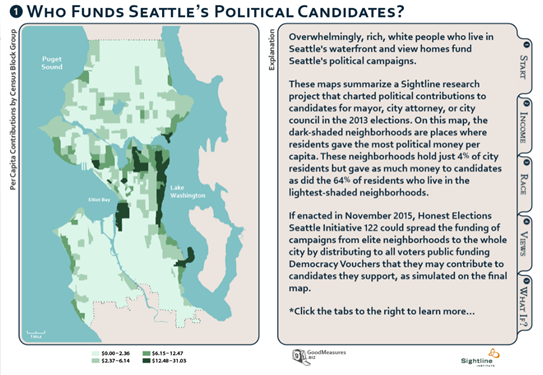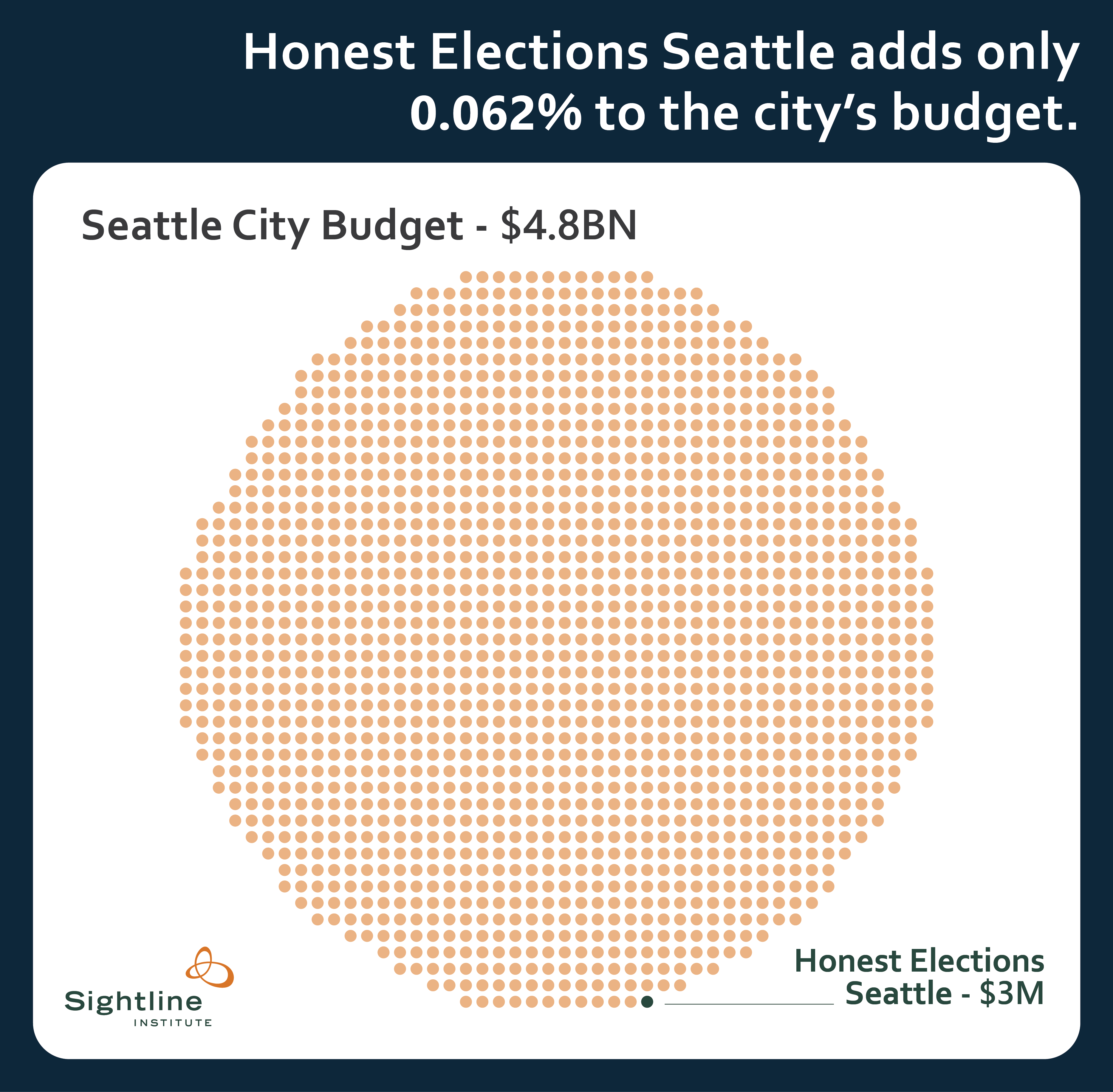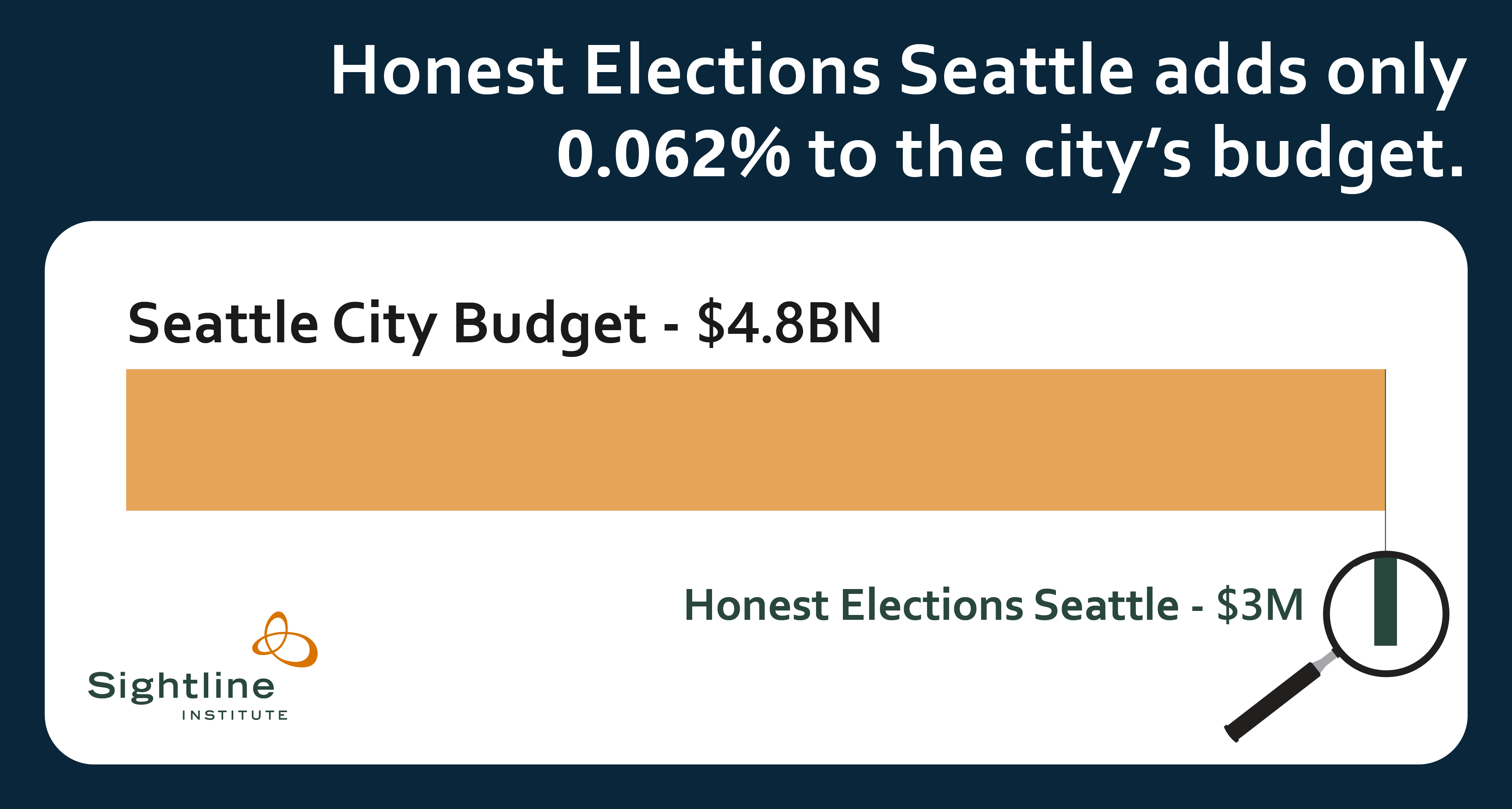The Seattle Times recently editorialized against I-122 Honest Elections Seattle. Its arguments include a litany of errors. To set the record straight, I’ll repost and correct each of the editorial board’s four points.
The Times writes:
The proposal counts on people not participating. . . . Only about . . . 13 percent . . . of the vouchers could be redeemed before the money runs out. While the initiative suggests all voters should have a chance to contribute to campaigns — using taxpayer dollars — it assumes only a small percentage of voters would actually bother to do so, even when the money doesn’t come out of their own pockets. More money, more apathy.
The truth is that Honest Elections Seattle projects and counts on more people giving to local campaigns than ever seen in Seattle or anywhere else in the United States. I-122 gives Democracy Vouchers to every registered voter in the city, giving them a chance to have a voice in local politics as never before. In my dreams, everyone would treasure and use those vouchers. In reality, most people will not. Vouchers start from a baseline of political giving that could hardly be lower: In Seattle’s 2013 elections only 1.5 percent of city adults made campaign contributions.












